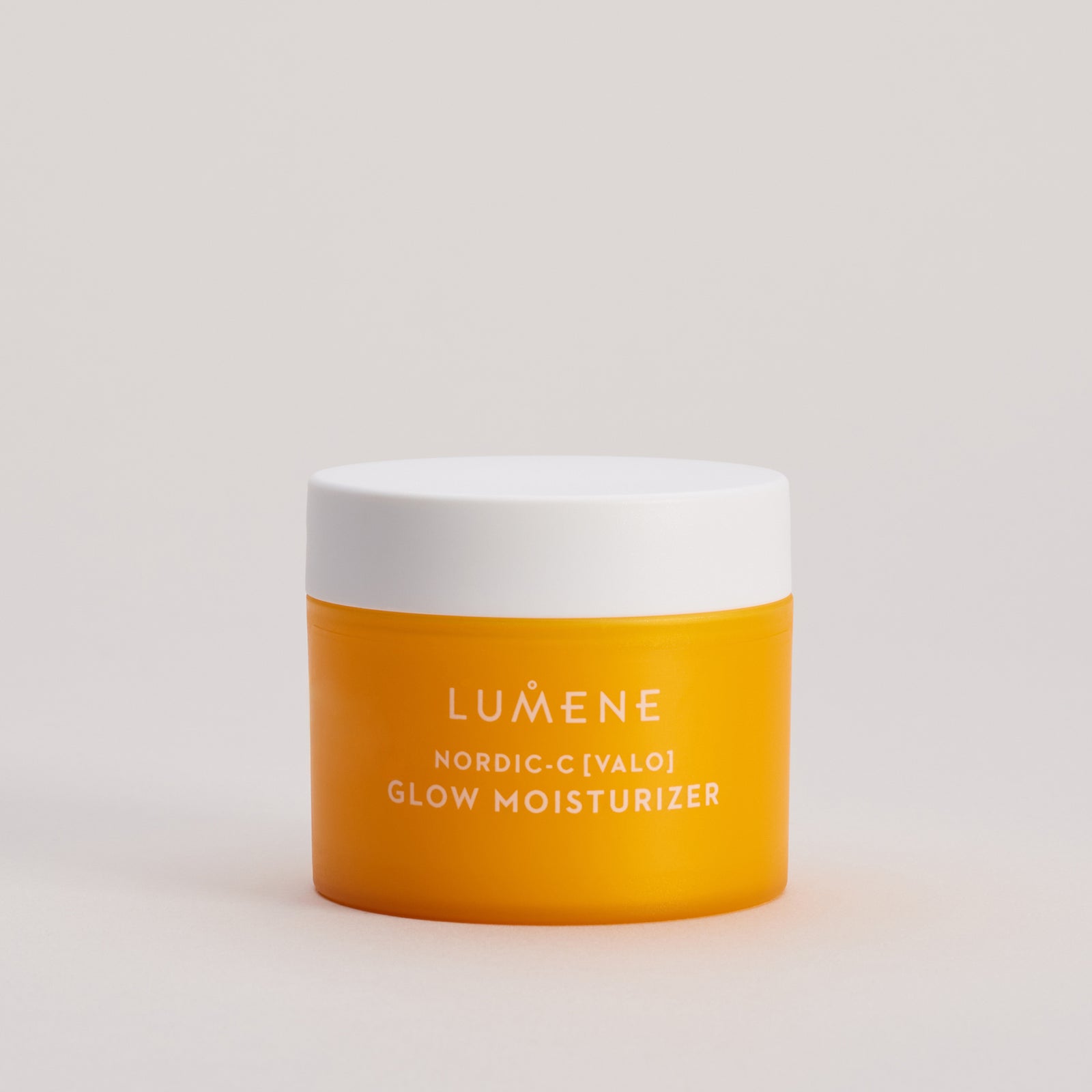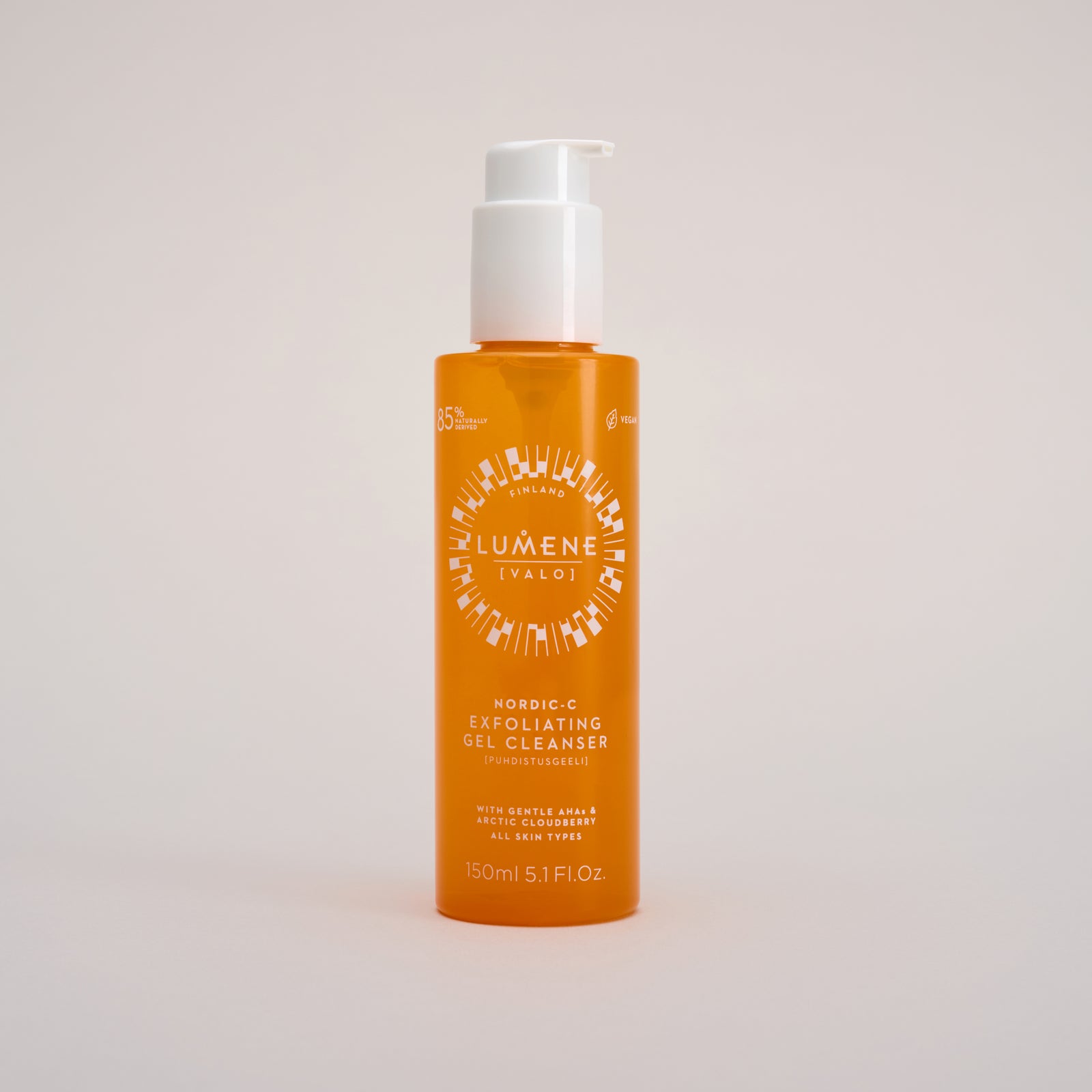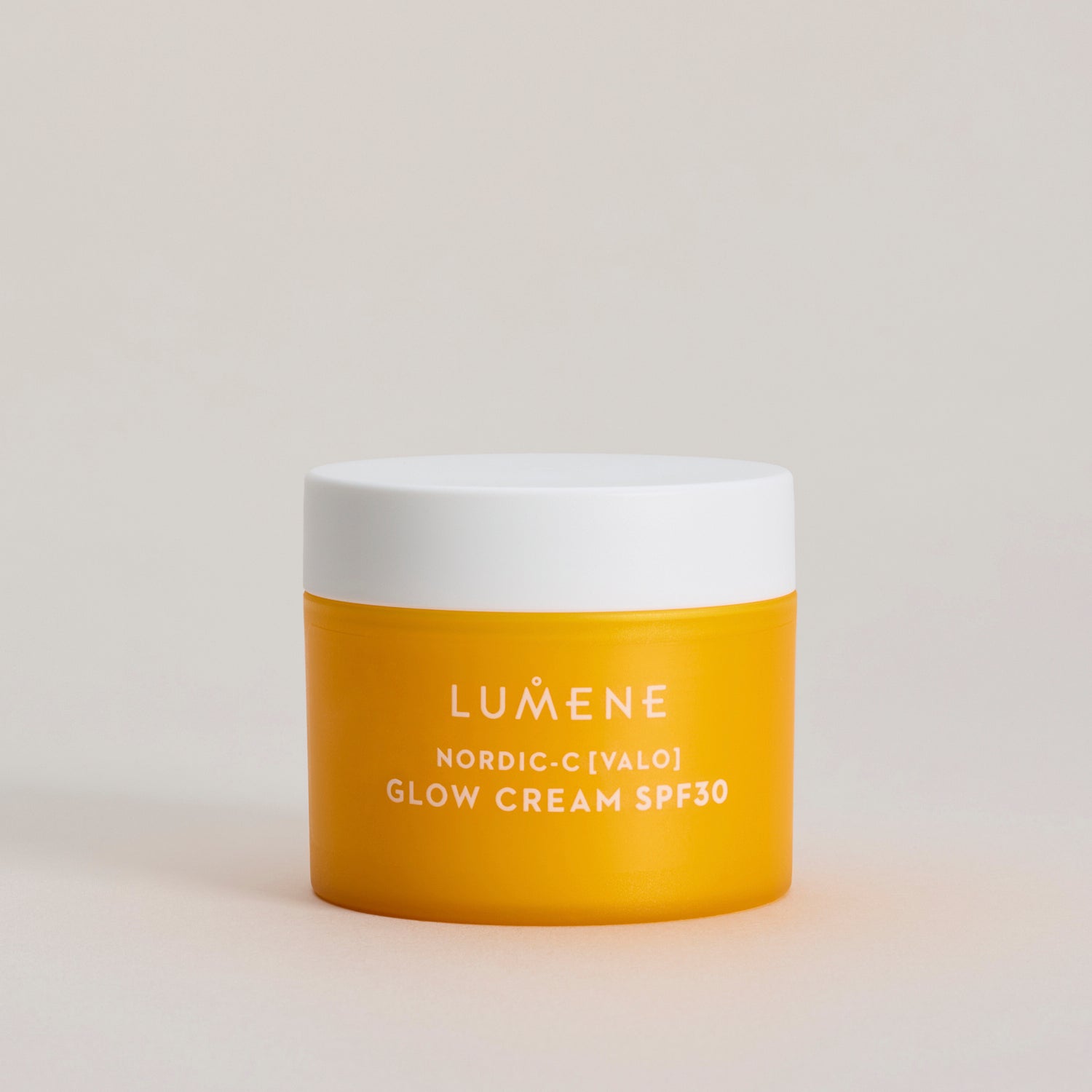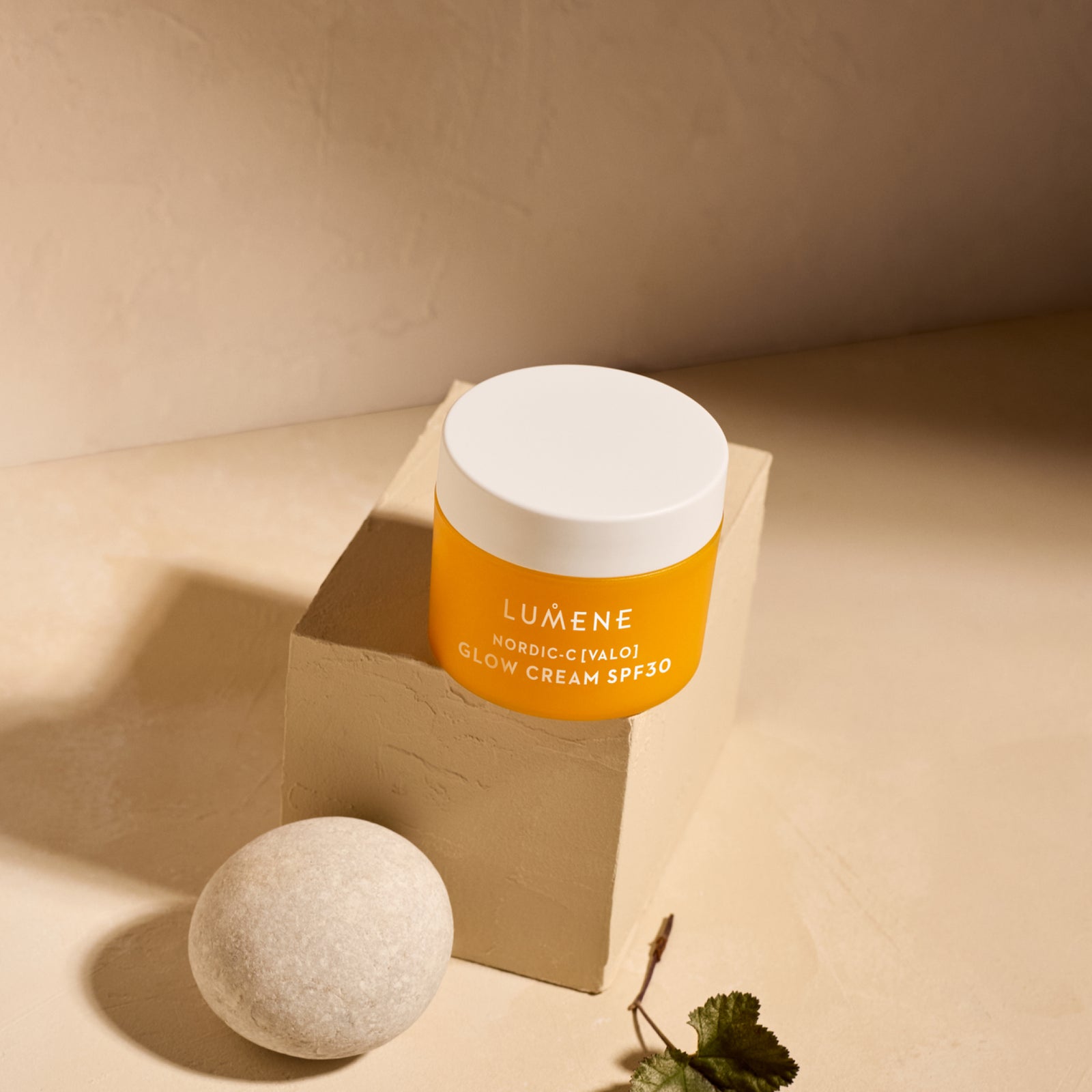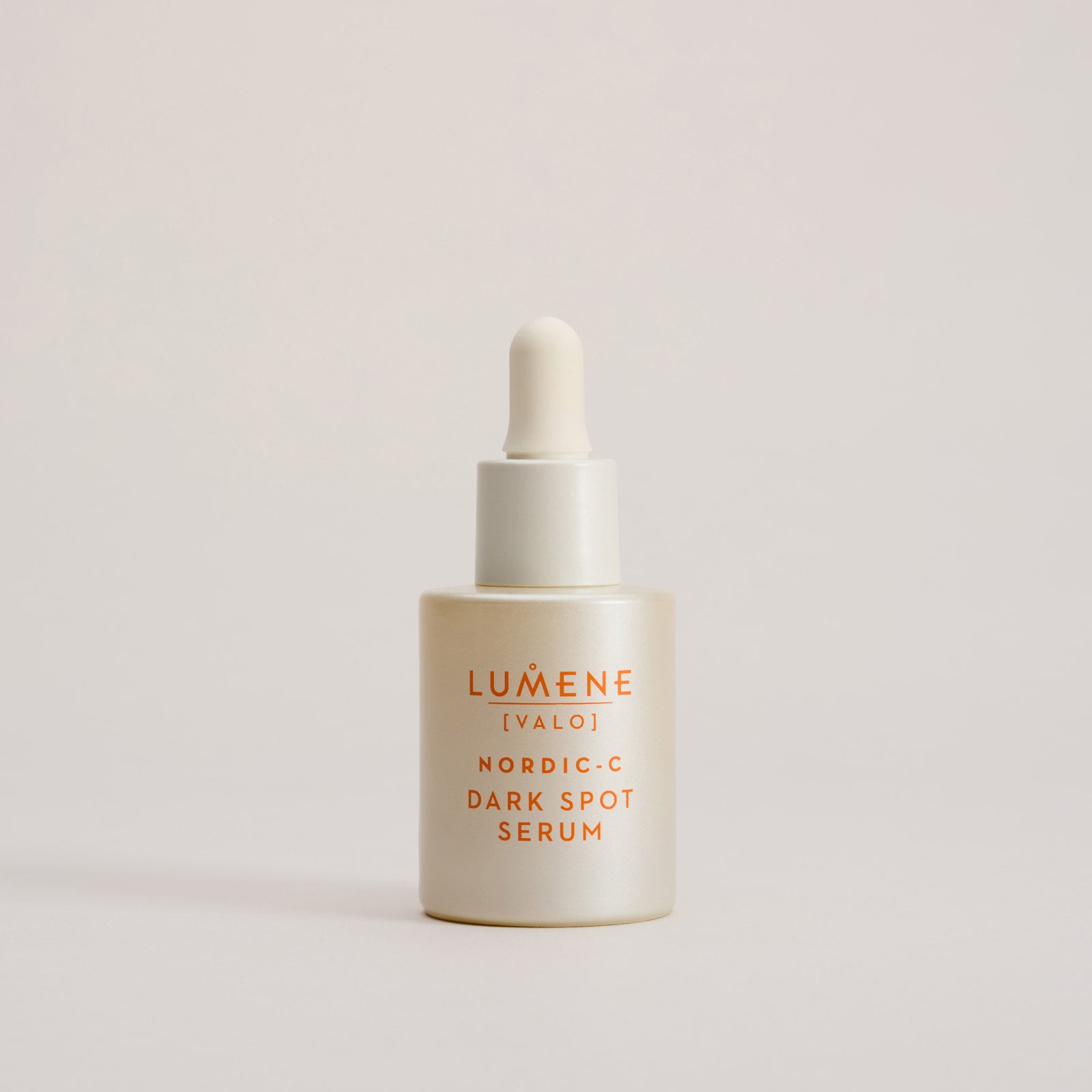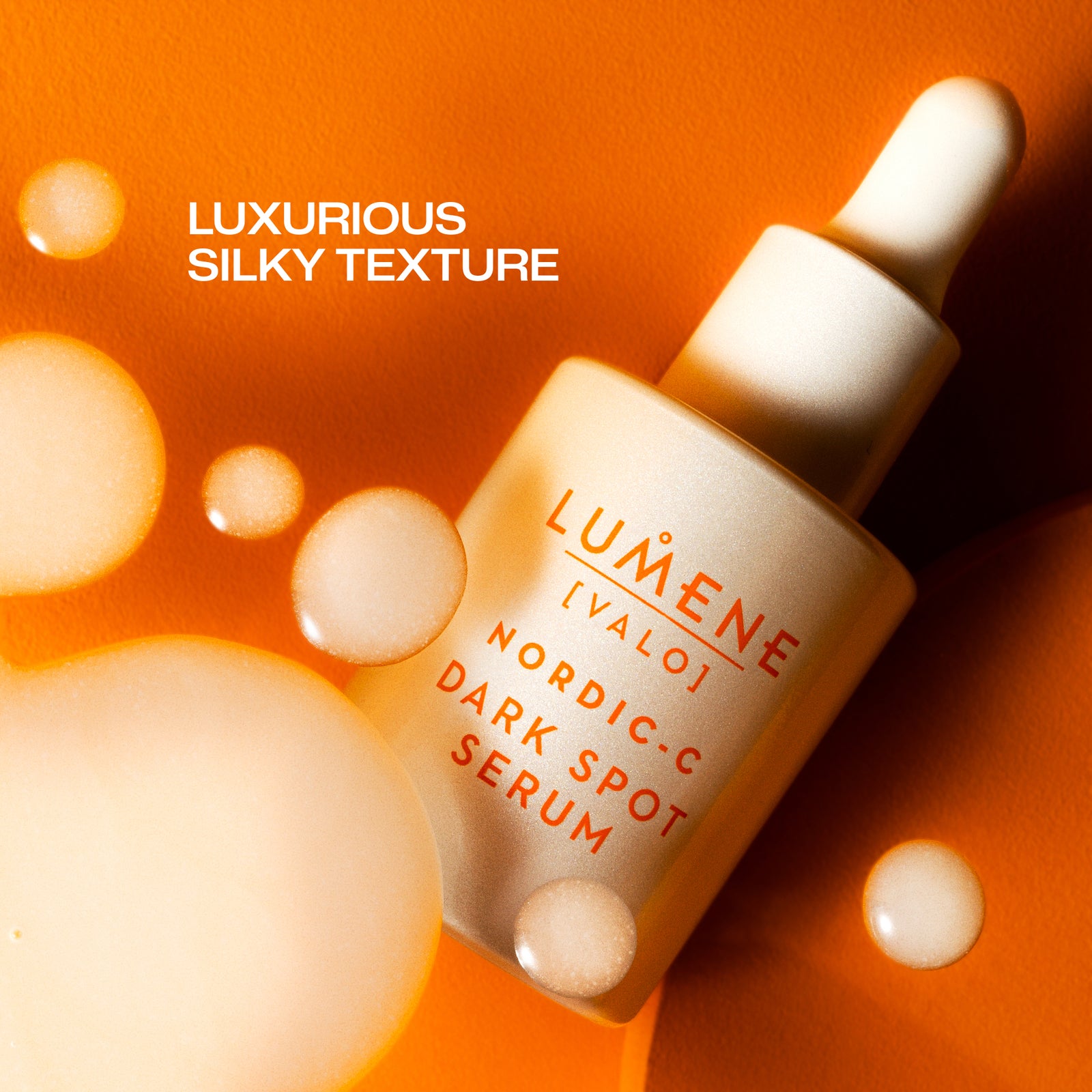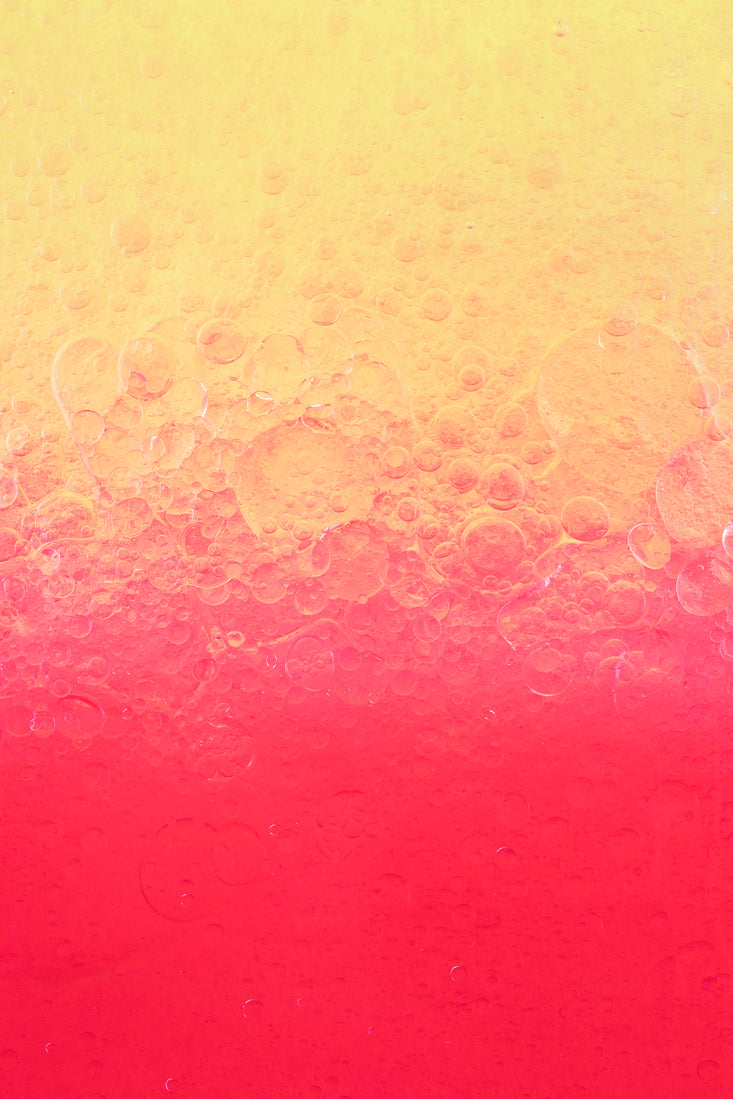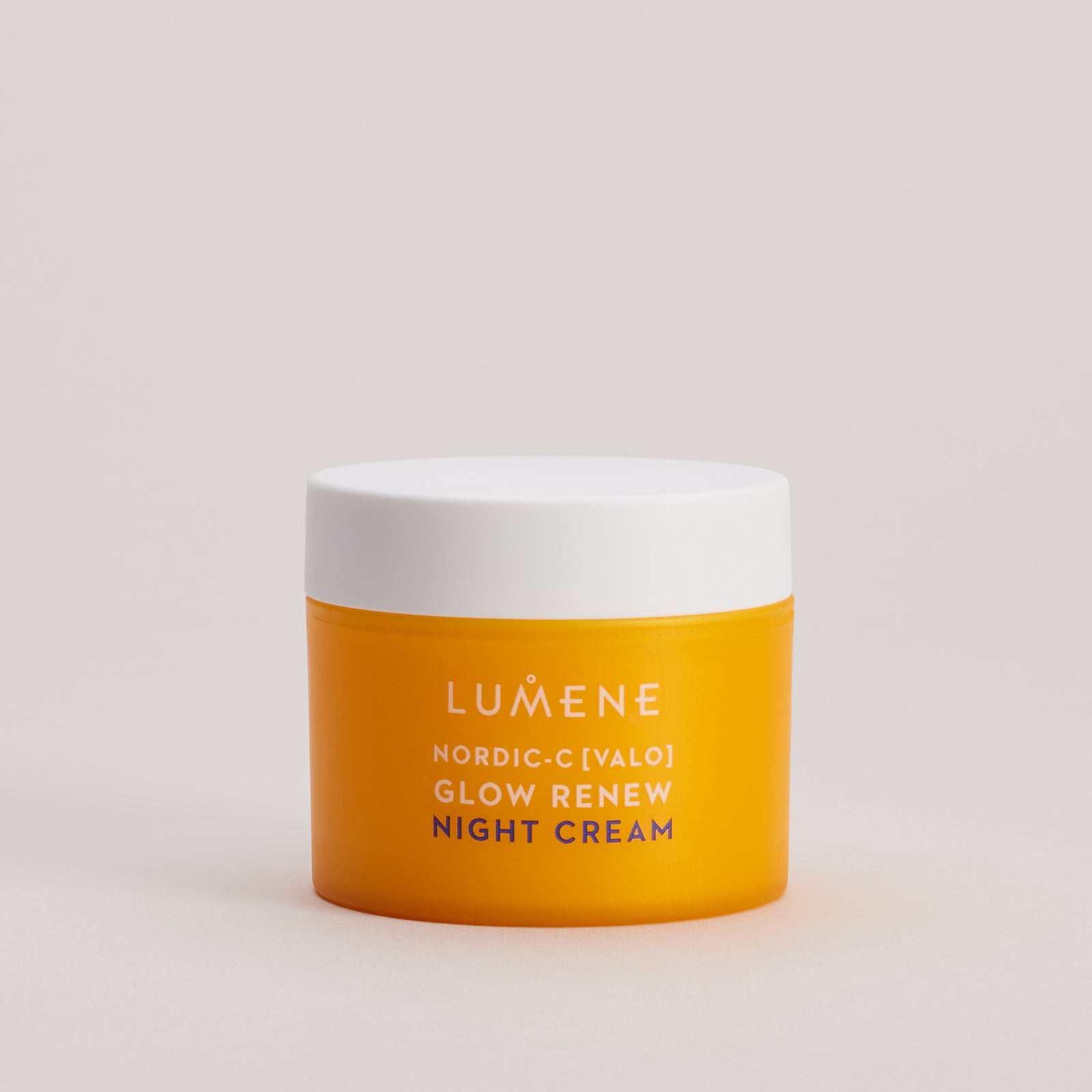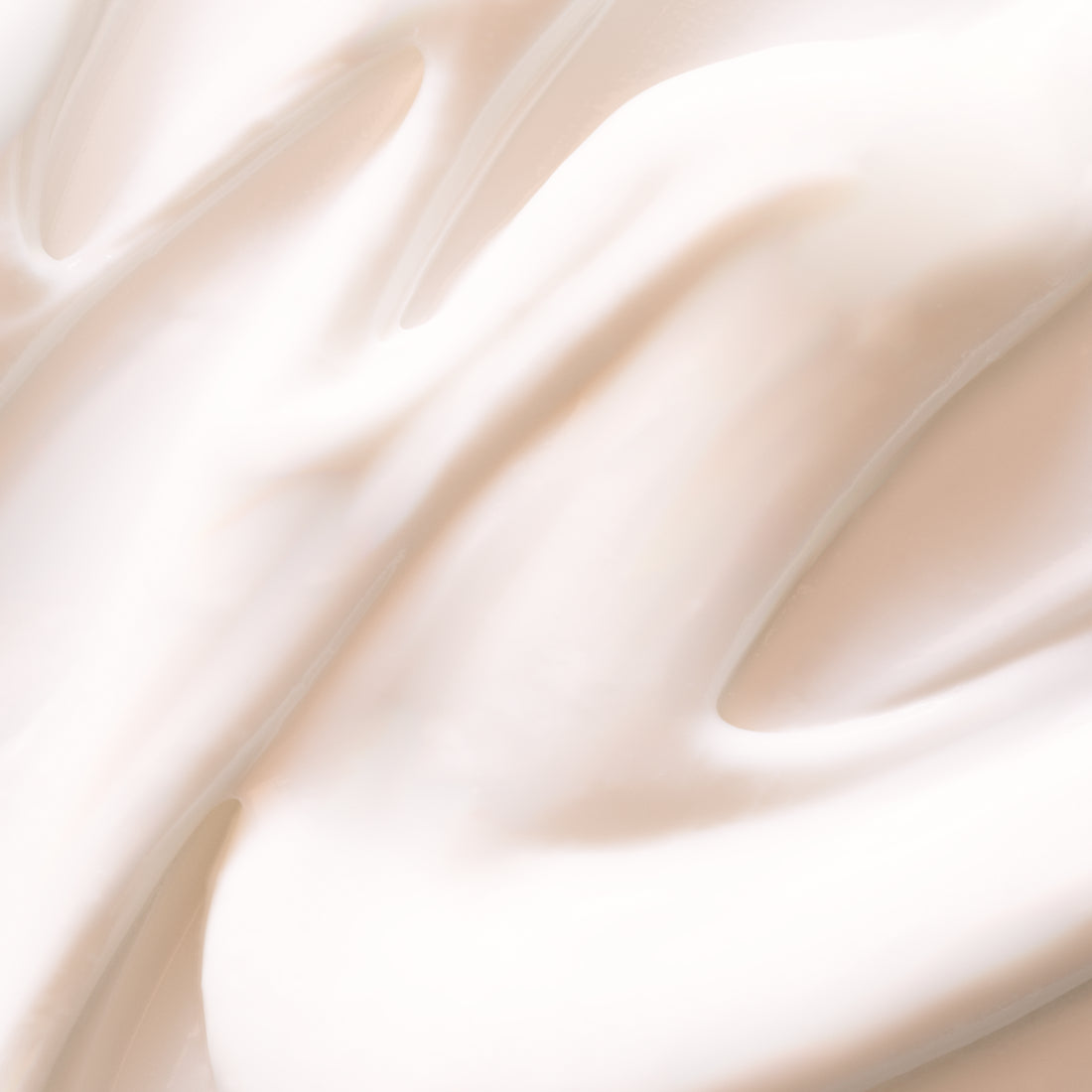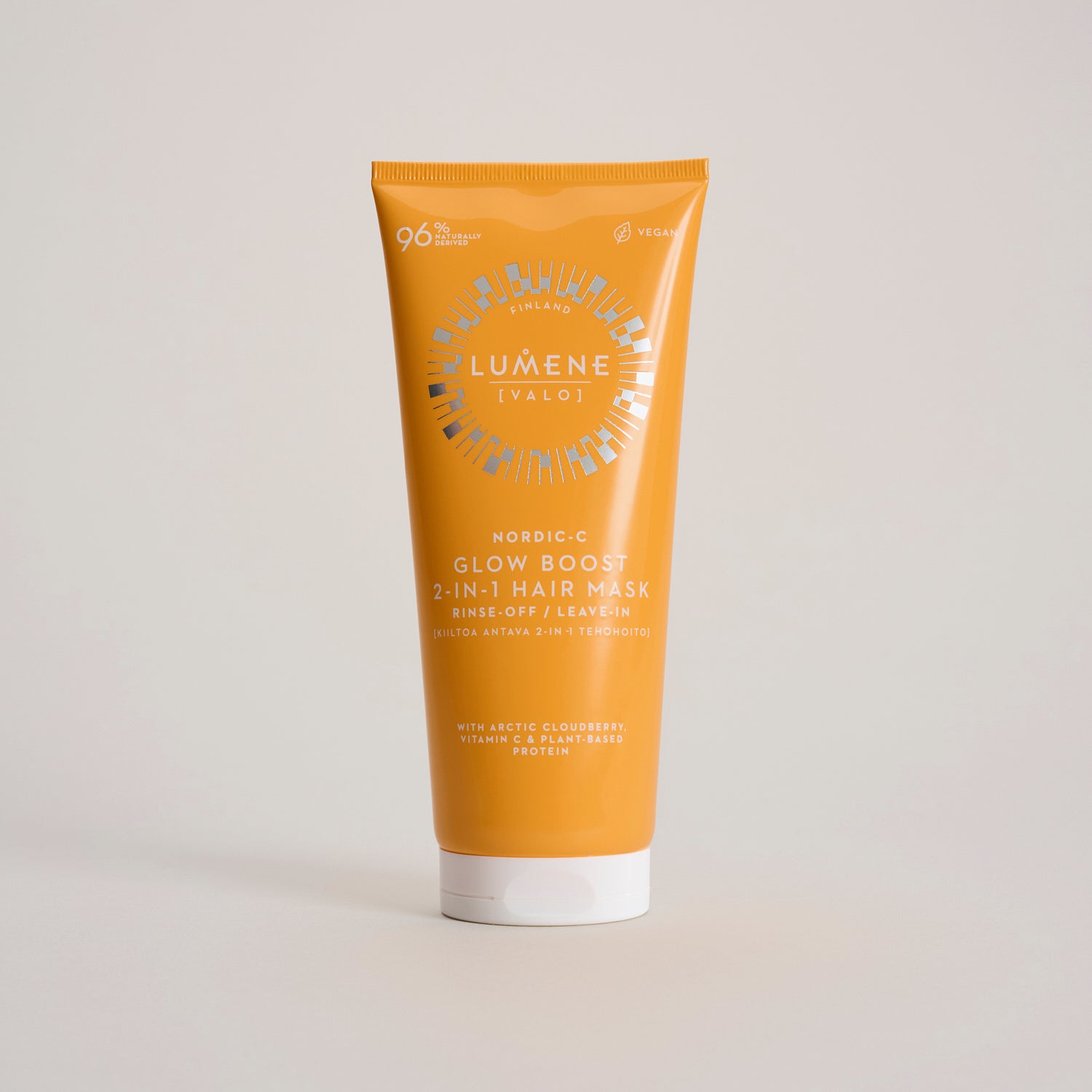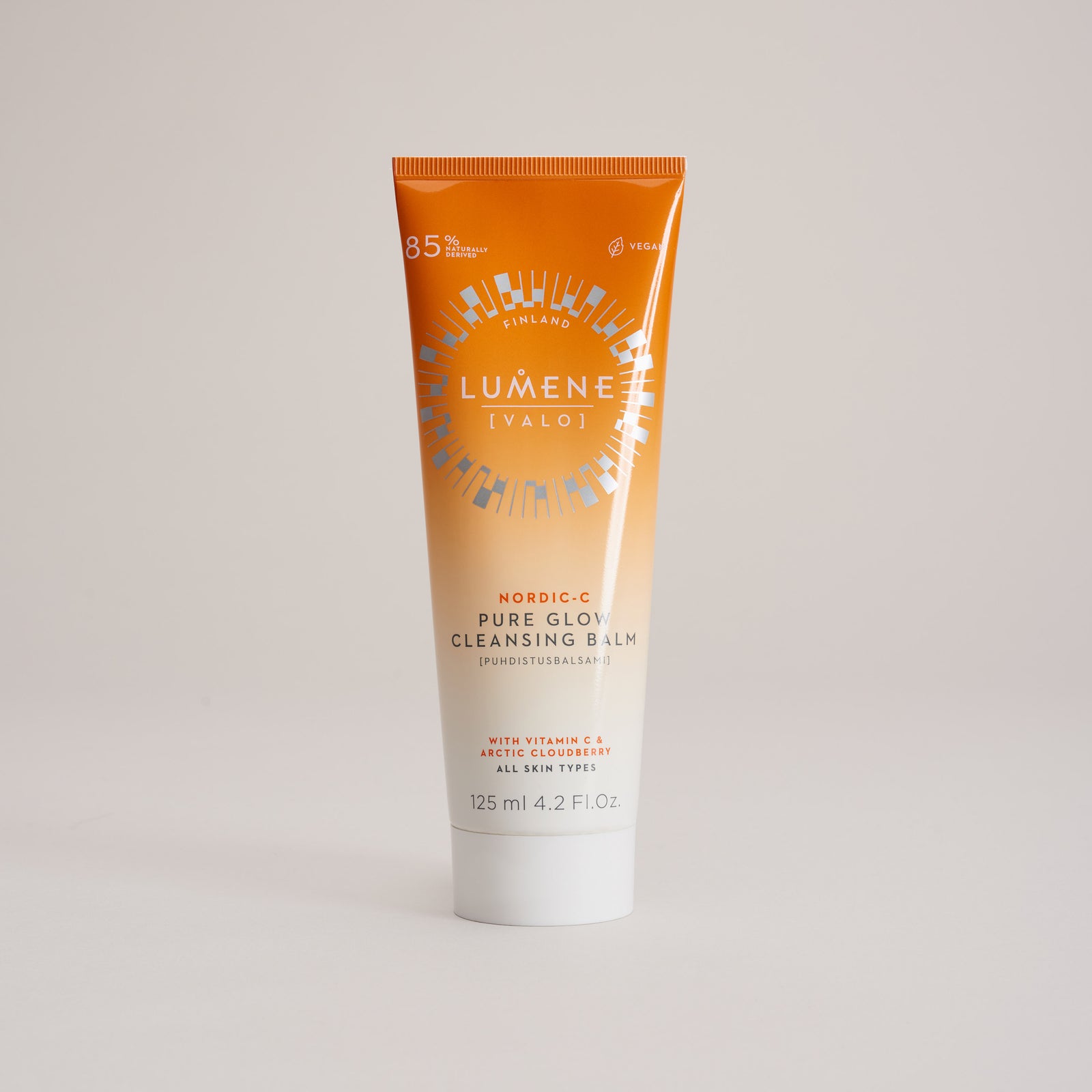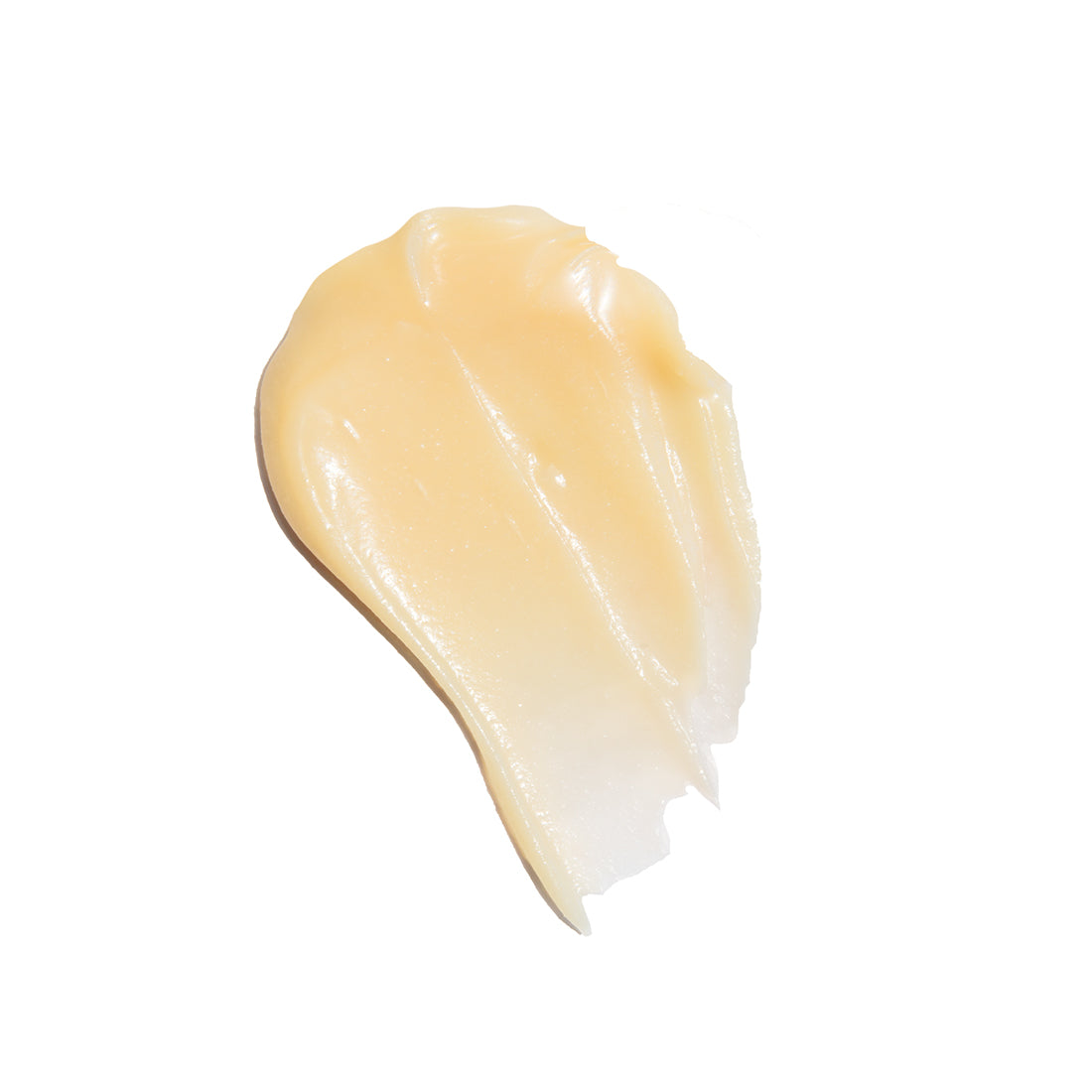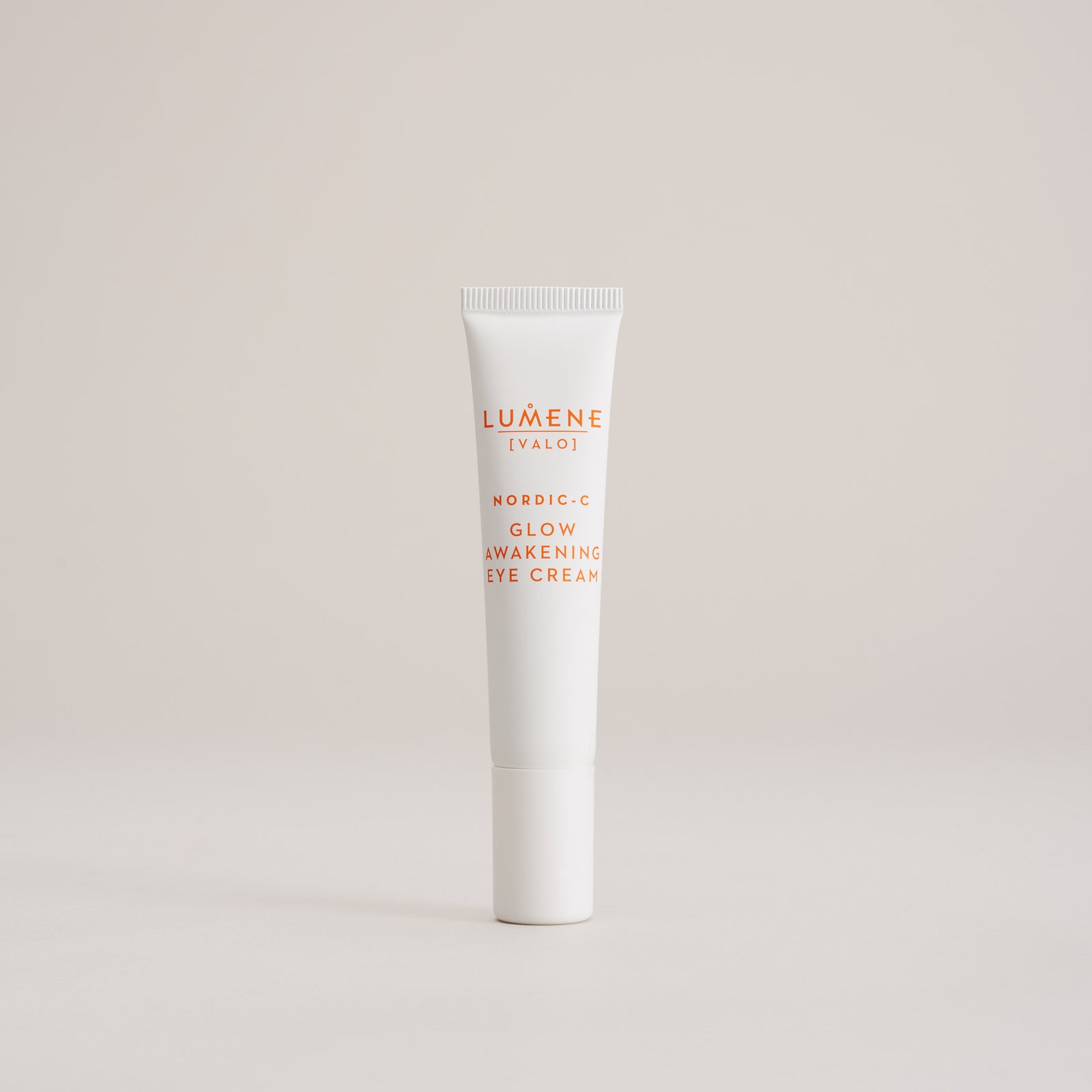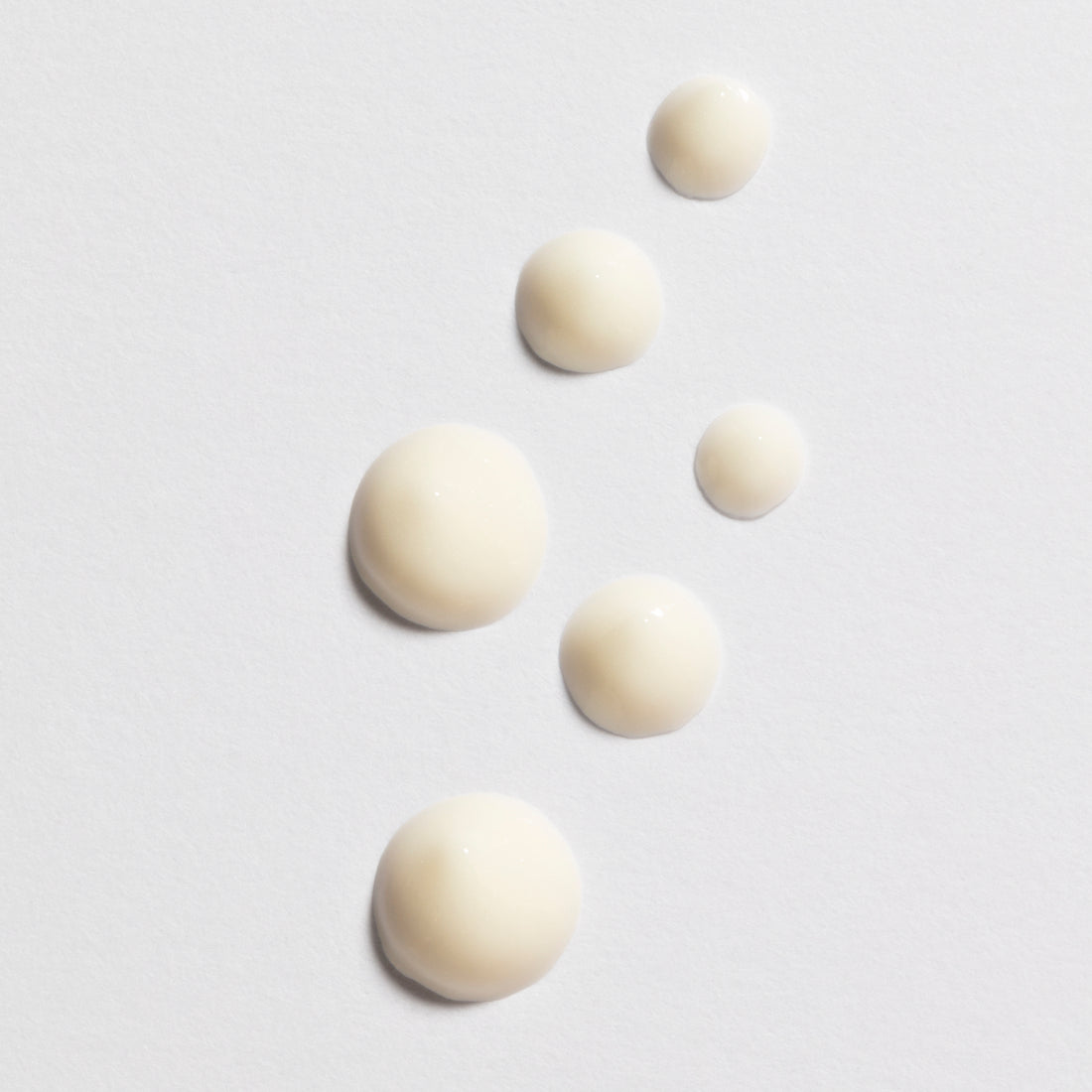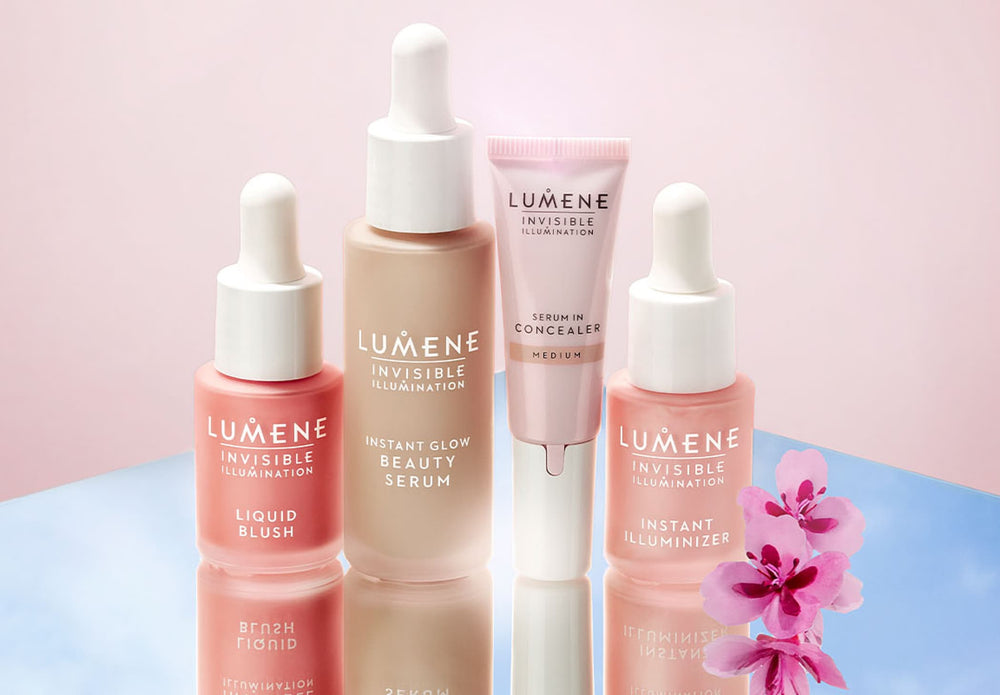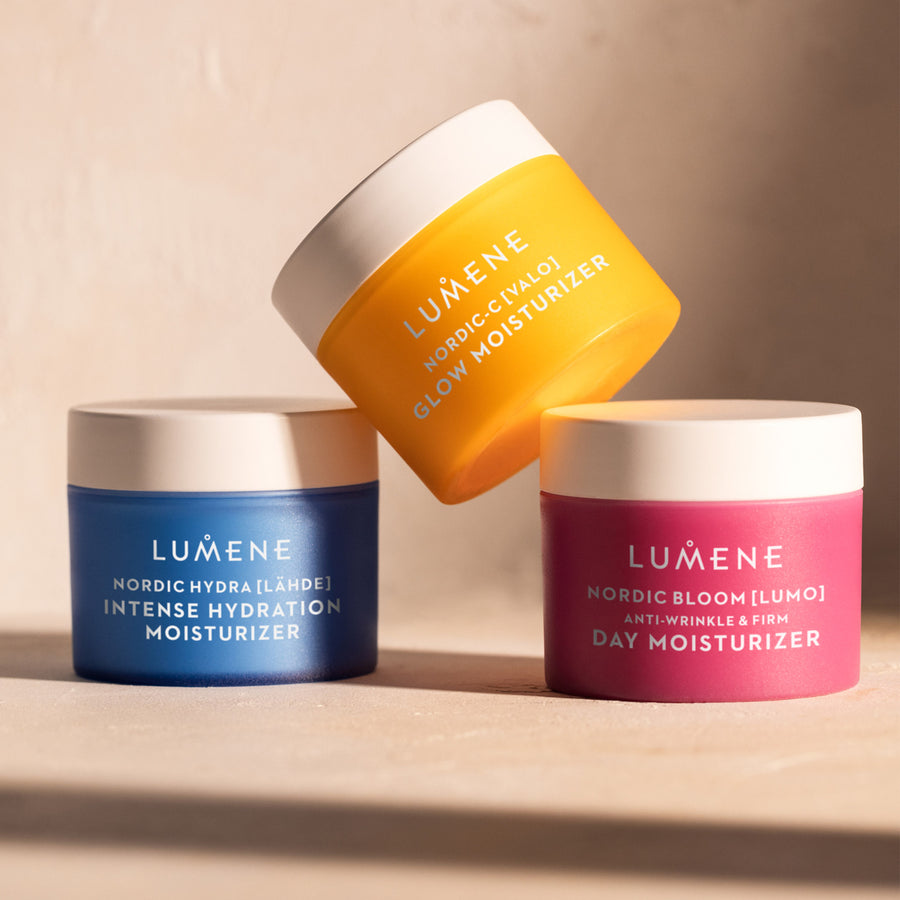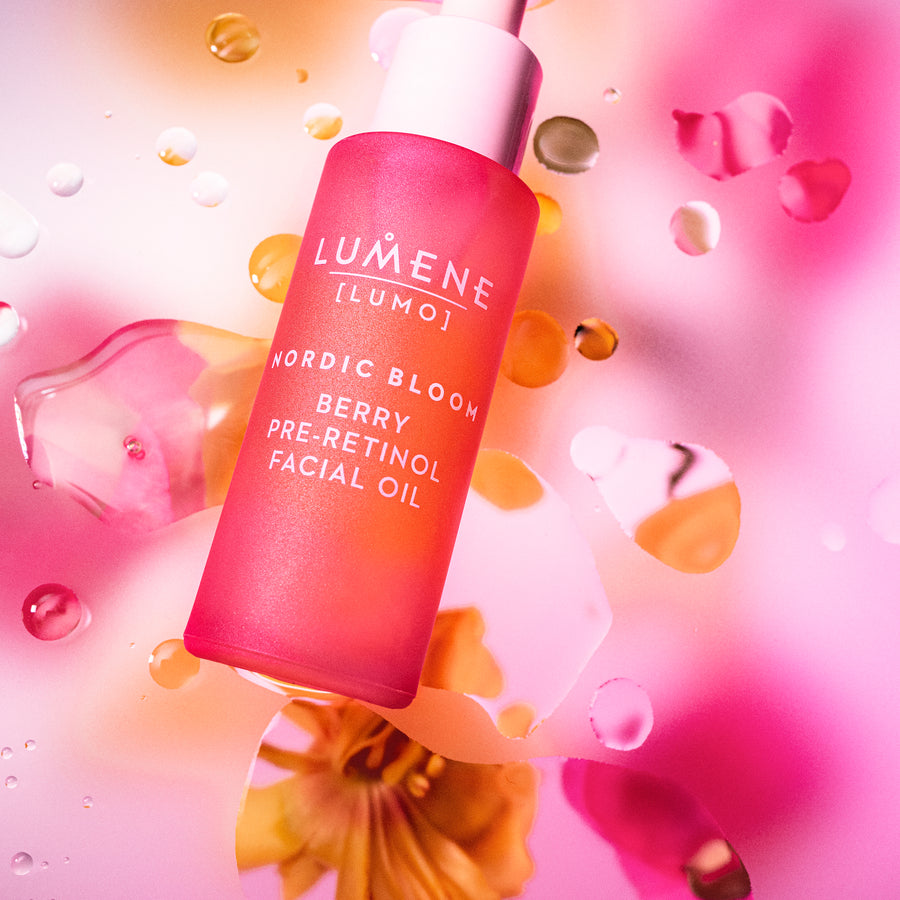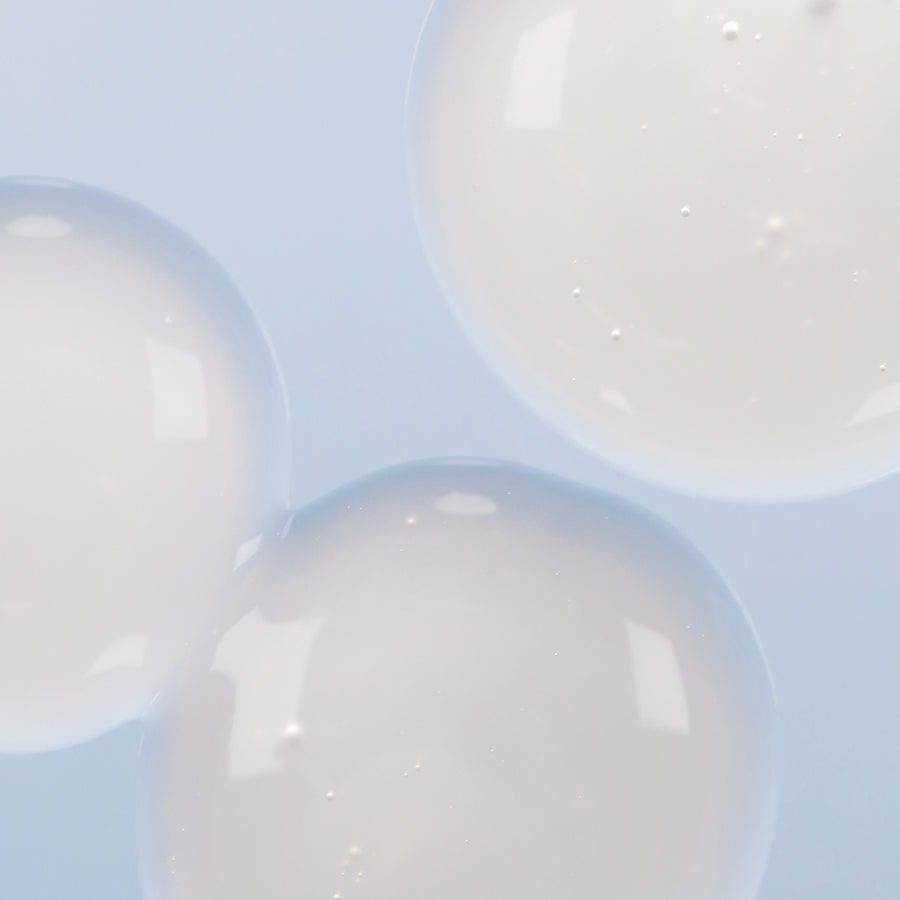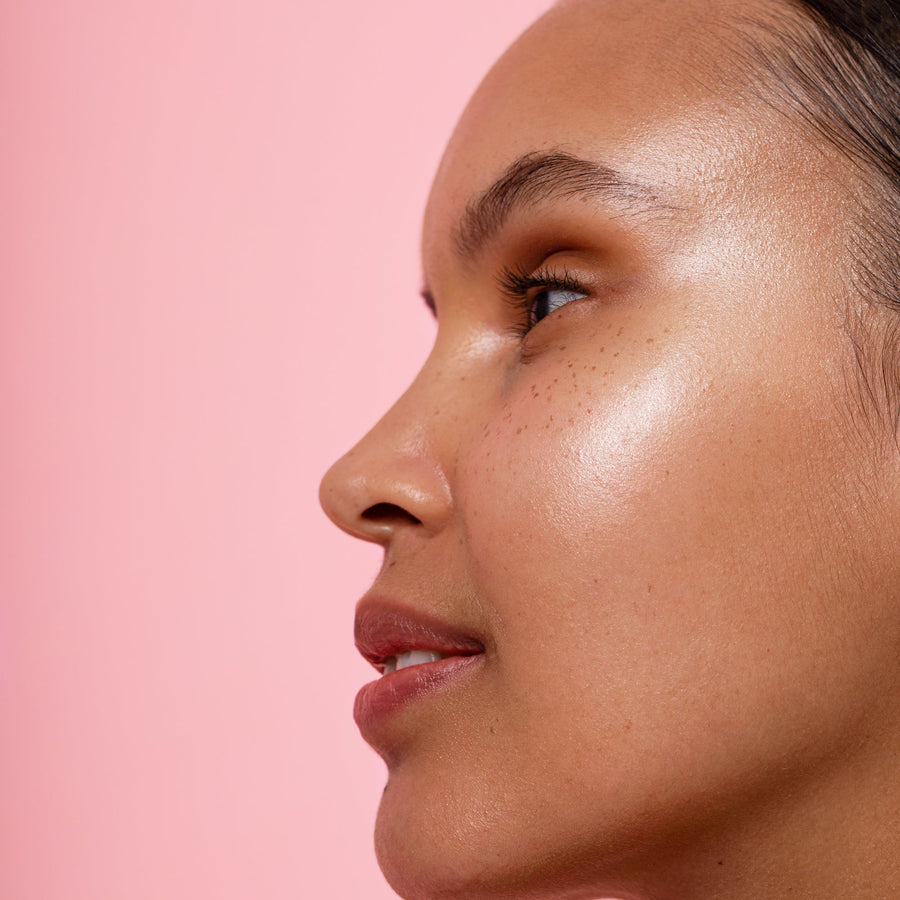This is how vitamin C affects the skin
- It makes the skin more radiant: Vitamin C helps to boost radiance and even out your complexion. Increased production of melanin in some areas can cause pigmented spots, called hyperpigmentation - vitamin C helps lighten these patches of darker pigmentation, supporting an even skin tone. This hero ingredient can also help minimize scars caused by acne or blemishes and reduce the appearance of dark circles under the eyes.
- It makes the skin glow: Everyone – including those with no pigment changes – can benefit from a vitamin C glow. Try it if your skin looks dull or tired perhaps due to stress or illness. Vitamin C works quickly to make skin appear glowy and re-energized.
- It makes the skin firmer: Without vitamin C the body would not be able to produce collagen, a protein that improves skin elasticity - giving it a fresh, plump appearance. Our bodies produce collagen naturally, however after the age of 25 the production starts to decline gradually. By adding some vitamin C into your routine, you can help support collagen production, leaving your skin looking youthful and glowing.
- It renews the skin: Due to its antioxidant properties, Vitamin C aids the skin’s natural regeneration process in repairing damaged skin cells.
- It protects the skin. Vitamin C is a potent antioxidant that helps protect skin cells from oxidation. Oxidation is a process that ages skin prematurely. Both sun’s UV radiation as well as pollution accelerate the oxidation of cells. Therefore, your skin can benefit from a vitamin C serum or a cream all year round. One of the great advantages of vitamin C is that you can use it both day and night. There is no need to worry about it sensitizing the skin to UV rays. However, keep in mind that vitamin C is no substitute for a sunscreen product, remember to use both.










